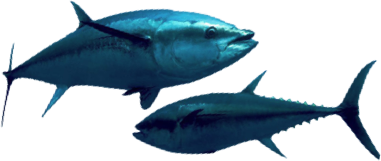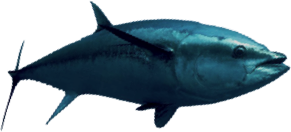The CCSBT has established a Working Group on Ecologically Related Species (ERSWG). The CCSBT requires the ERSWG to provide information and advice based on research which:-
- determines the nature and extent of interactions with Ecologically Related Species (ERS) in SBT fisheries;
- determines the effects of SBT and other fisheries on ERS;
- assesses current or potential measures to reduce ERS captures.
Reports of past meetings of the ERSWG can be found here.
CCSBT Spatially Explicit Fisheries Risk Assessment (SEFRA) for Seabirds
From 2023 to 2025, the ERSWG convened the dedicated technical working group and conducted the Spatially Explicit Fisheries Risk Assessment (SEFRA) for seabirds as an ERSWG collaborative assessment in the areas of data provision, model development and examination of model robustness.
The Report of the Technical Working Group on CCSBT collaborative risk assessment for seabird bycatch with surface longlines in the Southern Hemisphere, adopted by the Extended Commission in 2024, can be found here.
In April 2025, the ERSTech 2025 meeting finalised a CCSBT-SEFRA model for seabirds in tuna longline fisheries conducted by CCSBT Members. In October 2025, the Extended Commission approved Report of the Technical Working Group on CCSBT collaborative risk assessment for seabird bycatch with surface longlines in the Southern Hemisphere 2025 (CCSBT SEFRA Technical Report 2025), and also agreed to make the SEFRA code publicly available on request to allow its use outside of CCSBT, noting that such release would be strictly limited to the coding element and would not include any of the input data provided by Members.
CCSBT Ecologically Related Species Bycatch Strategy
Following the Action Plan of the CCSBT Strategic Plan 2023-2028, the Extended Commission was tasked with developing the Ecologically Related Species and Bycatch Action Plan. This Action Plan aimed to address the impact of SBT fisheries on non-target species that belong to the same ecosystem, focusing on ERS species other than seabirds, given that the CCSBT has already implemented the CCSBT Multi-Year Seabird Strategy.
In October 2025, based on the recommendations from the ERSWG 15 and the ERSTech 2025, the Extended Commission adopted the Ecologically Related Species Bycatch Strategy, which includes actions to achieve the specific objectives of this strategy.
Advice on best practice for educational activities
The ERSWG also has a role in the development of advice on best practice for educational activities. Education pamphlets on seabirds and sharks have been produced and distributed to SBT fishers since 2003. Technical (mainly taxonomical) aspects of these pamphlets were updated in 2011-13. These are;
- English versions (Seabird (Zip 58.6MB), Shark (Zip 38.4MB))
- Japanese versions (Zip 97.0MB)
- Korean versions (Zip 95.6MB)
- Mandarin versions (Zip 80.9MB)
- Indonesian versions (Zip 95.7MB)
Additionally, a Terms of Reference for a Technical Ecologically Related Species Working Group (ERSTech) were agreed in 2024. The role of the ERSTech is to support the work of the ERSWG by providing advice on topics of a technical nature such as:
- A review of the effectiveness of existing bycatch mitigation measures;
- A review of ERSWG Data Exchange requirements;
- Exercises aimed at quantifying the risk to ERS from SBT fisheries and vice versa;
- Work aimed at improving ERS species identification;
- The development of seabird bycatch targets;
- Technical work to support the identification of high-risk areas;
- Applicability of electronic monitoring in the context of ERS data collection;
- The development of response protocols for high capture events;
- Assessment of new bycatch mitigation measures; and
- The development of ERS research proposals.

